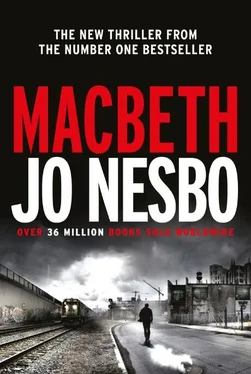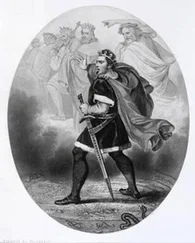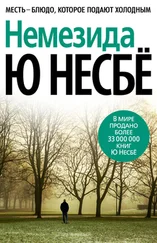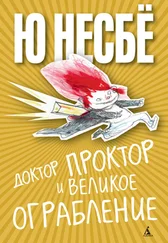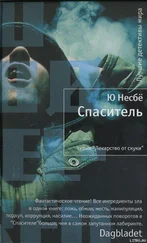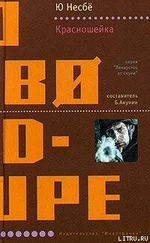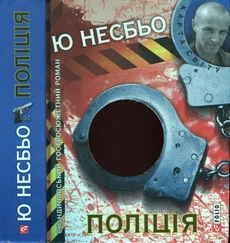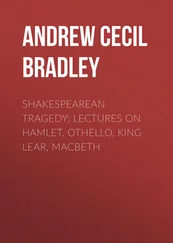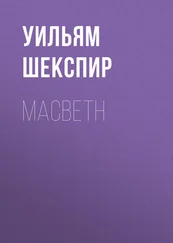‘And who will give the press conference?’ Duff asked.
Before Macbeth had the chance to answer, the door opened. It was Priscilla, Lennox’s assistant.
‘Sorry to interrupt,’ she said. ‘A patrol car has reported that Malcolm’s car is parked at the container harbour. It’s empty and there’s no sign of Malcolm.’
Macbeth felt the silence in the room. Savoured the knowledge that they didn’t share. And the control it gave him.
‘Where in the container harbour?’ Macbeth asked.
‘On the quay by one of the canals.’
Macbeth nodded slowly. ‘Send divers.’
‘Divers?’ Lennox said. ‘Isn’t that a bit premature?’
‘I think Macbeth’s right,’ Priscilla interrupted, and the others turned to her in astonishment. She gulped. ‘They found a letter on the car seat.’
The press conference started at ten precisely. When Macbeth entered Scone Hall and walked to the podium, flashes fired off from all angles and cast grotesque fleeting shadows of him on the wall behind. He placed his papers on the lectern in front of him, looked down at them for a few seconds, then coughed and scanned the full rows of seats. He had never enjoyed speaking in front of audiences. Once, long ago, the very thought of it had been worse than the most hazardous mission. But it had got better. And now, this evening, he felt happy. He would enjoy it. Because he was in control and knew something they didn’t. And because he had just inhaled a line of brew. That was all he needed.
‘Good evening, I’m Inspector Macbeth, head of the Organised Crime Unit. As you know, Chief Commissioner Duncan was found murdered at Inverness Casino this morning at 6.42. Immediately afterwards the two provisional suspects in the case, Duncan’s bodyguards Police Officer Andrianov and Police Officer Hennessy, were shot and killed by the police in the adjacent room when they resisted arrest. An hour ago you were given a detailed account of the course of events, our current findings and assumptions about the case, so this can be dealt with quickly. But I would like to add a couple of things of a more technical nature.’
Macbeth held his breath and one journalist was unable to restrain himself:
‘What do you know about Malcolm?’ the question resounded.
‘Is he dead?’ another journalist lobbed in.
Macbeth looked down at his notes. Put them to the side.
‘If these questions mean the press considers we’ve covered our responsibility to report on the murder of Chief Commissioner Duncan, we can now talk about the disappearance of the deputy chief commissioner.’
‘No, but first things first,’ shouted one of the older journalists. ‘We have deadlines looming.’
‘OK,’ Macbeth said. ‘Deputy Chief Commissioner Malcolm didn’t show up — as you appear to know — at our meeting in police HQ at six. On a day when the chief commissioner has been found dead that is of course disturbing. So we instigated a search, and Malcolm’s car was located this afternoon in the container harbour. Subsequently the area was searched, also by divers. And they found—’
‘The body?’
‘—this.’ Macbeth held up a round piece of metal that glinted in the glare of the TV lamps. ‘This is Malcolm’s police badge, and was found on the seabed by the quay.’
‘Do you think someone has killed him?’
‘Possibly,’ Macbeth said, without batting an eyelid, in the deafening silence that followed. ‘If by someone we include Malcolm himself.’ He ran his eye over the audience and continued: ‘A letter was found on the front seat of his car.’
Macbeth addressed the letter. Cleared his throat.
‘The Norse Riders threatened they would kill my daughter, Julia, if I didn’t help them to kill the chief commissioner. But now they have a hold on me and they’ve told me to perform other services for them, too. I know that for as long as I’m alive the threat to my daughter will always be there. That is why — and because of the shame I feel for what I’ve done — I’ve decided to drown myself. It is signed by the deputy chief commissioner.’
Macbeth looked up at the assembled journalists. ‘The first question we — and I presume you, too — are asking is of course whether the letter is genuine. Our Forensics Unit has confirmed that the letter was written on Malcolm’s typewriter at HQ. The paper bears Malcolm’s fingerprints and the signature is Malcolm’s.’
It was as though the room needed a few seconds to digest the information. Then came shrill voices.
‘Do you know if there’s anything else to confirm Malcolm was behind Duncan’s murder?’
‘How could Malcolm have helped the Norse Riders to murder Duncan?’
‘What’s the connection between Malcolm and the bodyguards?’
‘Do you think there are any other police officers involved?’
Macbeth held up his palms. ‘I won’t answer any questions about Duncan’s murder now, as it is all speculation. Only questions about Malcolm’s disappearance. One at a time, please.’
Silence. Then the only female journalist in the room said, ‘Are we to understand that you’ve found Malcolm’s police badge, but not Malcolm?’
‘We have a muddy seabed to contend with, and the water in our harbour is not the cleanest. A light brass badge doesn’t necessarily sink into the mud the way a body does, and brass reflects light. It will take the divers time to find Malcolm.’
Macbeth watched the journalists as they threw themselves over their pads and made notes.
‘Isn’t the most obvious reason for that the current carrying away the body?’ said a voice with rolled ‘r’s.
‘Yes,’ Macbeth replied, and he spotted the face behind the voice. One of the few who wasn’t taking notes. Walt Kite. He didn’t need to; the radio station microphone was placed in front of Macbeth.
‘If Malcolm killed Duncan and regretted it, why—’
‘Stop.’ Macbeth raised a palm. ‘As I said, I won’t answer any questions about Duncan’s murder until we know more. And now please understand that we have to return to work. The number one priority for us is to investigate this case as quickly and efficiently as we can with the resources at our disposal. We also have to appoint a chief commissioner as soon as possible so that we have continuity in the rest of the work the police are doing for this town.’
‘Is it correct that you’re the acting chief at this moment, Macbeth?’
‘In formal terms, yes.’
‘And in practice?’
‘In practice...’ Macbeth paused. Looked down quickly at his sheet. Moistened his lips. ‘We’re a group of experienced unit heads who have already taken the helm, and I’m not afraid to say we are in control. Nor, however, am I afraid to say that filling Duncan’s shoes will take some doing. Duncan was a visionary man, a hero who died in the fight against the powers of evil, who think today they have won a victory.’ He gripped the lectern and leaned forward. ‘But all they have achieved is to make us even more determined that this lost battle will be the start of progress towards the final victory for the power of good. For justice. For security. And through that for rebuilding, re-establishing and regaining prosperity. But we can’t do that alone; to do that we need your trust and the town’s trust. If we have that we will continue the work that Chief Commissioner Duncan started. And I would—’ he stopped to raise his hand as if swearing an oath ‘—like to guarantee personally that we will not stop until we have achieved the goals that Duncan set for this town and all — all — its inhabitants.’
Macbeth let go of the lectern and straightened up. Looked at the faces, which blurred into a sea of eyes and open mouths before him. No, he wasn’t afraid. He saw the effect and was still savouring the sound of his own words. Lady’s words. He had leaned forward exactly when he was supposed to. She had instructed him in front of a mirror and explained how aggressive body language gave the impression of spontaneous passion and hunger for a fight, and that body language was more important than the words he used because it bypasses the brain and speaks directly to the heart.
Читать дальше
